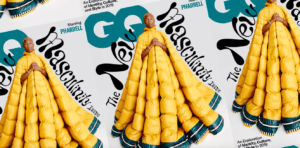“Disney is the worst enemy of family harmony.” You’d be forgiven for thinking those words were uttered yesterday, given the number of conservative politicians and pundits castigating Disney for “grooming children” following its criticism of the “Don’t say gay” bill.
In fact, the statement appeared just over 50 years ago, in a polemical analysis of Disney cartoons written by two Marxist militants, the Chilean writer Ariel Dorfman and the Belgian sociologist Armand Mattelart. How to Read Donald Duck: Imperialist Ideology in the Disney Comic was published in Chile during the brief rule of Salvador Allende as part of an attempt by Allende’s leftist allies to push back against American cultural influence. The book became a bestseller, but after Augusto Pinochet’s 1973 coup, it was banned and publicly burned.
The Right’s current lament for the betrayal of “traditional families who want to hold onto innocent entertainment for their kids” proceeds from the premise that this “woke Disney” is a deviation from the company’s benevolent past. But Dorfman and Mattelart, all the way back in 1971, contested this assumption of innocence. Although their methodology is Marxian and their aims overtly anti-capitalist, their allegations foreshadow the American Right’s current concerns in surprising ways.
Much of the analysis from the two socialist radicals concerns the printed comic strips that circulated widely in Latin America, where movies and TV were less accessible to the impoverished majority. In particular, they focus on Donald Duck and his extended family. As they note, this is an odd family: Donald Duck, along with Mickey Mouse and much of the rest of the Disney pantheon, exists in a “universe of uncles and grand-uncles, nephews and cousins”. Indeed, “there is one basic product that is never stocked in the Disney store: parents”. The “innocence” of this world, it turns out, required even the exclusion of normative heterosexual coupling.
But the consequences of this exclusion are by no means innocent. “One is forced to the paradoxical conclusion,” they argue, “that in order to conceal normal sexuality from children, it is necessary to construct an aberrant world” — an “asexual sexuated world” that is nevertheless “suggestive of sexual games and innuendo”. The real significance of the disappearance of parental relationships is to universalise the capitalist “law of the jungle”.
In other words, the elimination of the nuclear family unit reduces all Disney characters to “island-individuals”, strivers for whom “all that is left . . . is to compete”. The patriarch of Duckburg, after all, is none other than Uncle Scrooge, who takes his name from the Victorian icon of cruel rapacity and avarice; the adventures of his nephews tend to concern the acquisition of even more treasures for his horde.
The point of all this, according to Dorfman and Mattelart, is to “lend innocence to the adult world”. In the dominion of Uncle Scrooge, “[g]old, criticized ever since the beginning of a monetary economy as a contamination of human relations and the corruption of human nature, mingle[s] with the innocence of the [child].” The riches he and his nephews acquire always lack a material origin: gold simply appears, with no source or origin, just as the children are parentless. This “simultaneous lack of biological reproduction and direct economic production is not coincidental”: Disney’s “innocence” requires eradication of “all reference to the real world”.
How to Read Donald Duck contains many of the expected Left-wing criticisms of patriarchy and gender roles, but it also includes observations that might be surprising to ideologues today. Notably, as one illustration of the propaganda functions taken on by Disney in the Global South, the authors remark that the US Agency for International Development has circulated films featuring Disney characters promoting contraception. They reinforce this association with the title of their chapter on Disney family dynamics: “Uncle, buy me a contraceptive…”
Like many radicals at the time, Dorfman and Mattelart saw the US state’s growing interest in controlling fertility in the developing world as consistent with a broader campaign to suppress the value placed on family in the subject nations of its economic empire; this was deemed to be in tension with values such as efficiency, productivity, individualism, and competition. Disney’s exclusion of references to reproductive sexuality, in this light, looks less like an attempt to protect childhood innocence, than part and parcel of the larger modern decoupling of sex from reproduction.
It all suggests that the supposed sexual innocence of Disney’s dreamscapes was never aligned with “family values” in the first place and the Right’s current war on Disney isn’t about family — it is simply the latest phase of its realisation that corporate America has now largely aligned itself with the values of the cultural Left.
For, in fact, Disney’s vast influence on the imaginations of children has been enabled by market society’s weakening of the authority of the family. With parents overburdened by the demands of work, important aspects of child-rearing are entrusted to the entertainment industry. Disney has capitalised on this exploding demand more than any other company. If we take “grooming” to simply mean instilling values alien to the family into children, Dorfman and Mattelart would suggest that Disney has never been innocent of this charge.
One might ask how much distance there really is between the de-sexualised world of the classic Disney cartoons and the ideals animating the newfangled “woke Disney” — which have lately exercised the Right. Notoriously, one of the core elements of contemporary “gender ideology” is to erase biology. The reigning orthodoxy now holds that to be a boy, girl, man, or woman is no longer a question of physiological features but of internally felt identity linked to stereotypes. This is not unlike the “asexual sexuated world” Dorfman and Mattelart found in Disney’s comic strips, in which gender stereotypes prevailed but the material reality of sex had been occluded.
The latest permutations of the Disney universe may be the result of “ideological capture” by woke employees, but they also reveal a continuity with the company’s past. Just as it was back in 1971, Disney today is a propaganda organ disseminating ideological narratives that legitimise the global economic order. At the postwar height of industrial capitalism, tales of deracinated treasure-hunting ducks instilled acquisitive individualism in children at the expense of older communal and familial values. In the new era of global, dematerialised speculative capital, Disney is simply purveying new dreams, where what is to be acquired is a commodified form of identity.
The Left has, unsurprisingly, come to Disney’s defence in recent weeks, and even Dorfman, who had a prominent career in US academia after his forced exile from Chile, has softened his views on his old antagonist. Commenting on the appearance of a new English edition of How to Read Donald Duck, he remarked: “The Disney Corporation itself has evolved under pressure from minorities and feminists, and has distinguished itself by defending LGBTQ rights.” The Right, convinced of Disney’s original innocence, has no critique of its propaganda function, only the uses it is currently being put to. The company’s imperial power over the global imagination, vaster today than ever before, faces no credible challenge today from either side.
Disclaimer
Some of the posts we share are controversial and we do not necessarily agree with them in the whole extend. Sometimes we agree with the content or part of it but we do not agree with the narration or language. Nevertheless we find them somehow interesting, valuable and/or informative or we share them, because we strongly believe in freedom of speech, free press and journalism. We strongly encourage you to have a critical approach to all the content, do your own research and analysis to build your own opinion.
We would be glad to have your feedback.
Source: UnHerd Read the original article here: https://unherd.com




